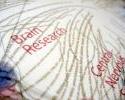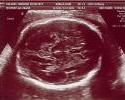By Anonymous, Fri, April 29, 2011
In order to truly understand some of the more common tendencies of people suffering from obsessive-compulsive disorder (OCD), it’s important to understand what the condition is comprised of.
OCD is essentially an anxiety disorder which is characterized by an unstoppable surge of unwanted thoughts in a person’s mind. These thoughts, in turn, lead to the sufferer desiring to perform some sort of ritualized behaviors in a repetitive manner so as to free themselves of the uncomfortable feelings that the unwanted thoughts bring about. However, while performing the rituals is an adequate temporary fix, it ends up being just that – a short-term solution.
The unwanted thoughts or impulses, otherwise known as obsessions, are uncontrollable thoughts or impulses that race through the sufferer’s head over and over again. And while the person with OCD may be completely conscious of the fact that they are having these irrational impulses and thoughts, and want to stop them, they are unable to do so.
In order to deal with these symptoms of OCD, sufferers tend to perform certain behaviors, known as rituals, which help make their obsessions go away. Generally speaking, the most popular groupings of people suffering from OCD tend to include the following categories: washers, checkers, doubters and sinners, counters and arrangers and hoarders.
More specifically, some sort of general fear tends to drive the motivations behind the sufferer’s actions. It may be anything ranging from fears of being contaminated by germs, to fear of causing harm, to fear of inappropriate sexual, religious or criminal ideas. A need to have order symmetry is also very common.
These obsessions then bring about behaviors including, but not limited to: constant double checking, counting, tapping, repeating actions, washing and cleaning, hoarding and praying in an excessive manner.
While the more general tendencies of people struggling with OCD have been documented, there are many less frequent tendencies that remain a mystery. Anyway unsure about whether or not they are struggling with OCD should get themselves tested by an appropriate mental health professional as soon as they can.









